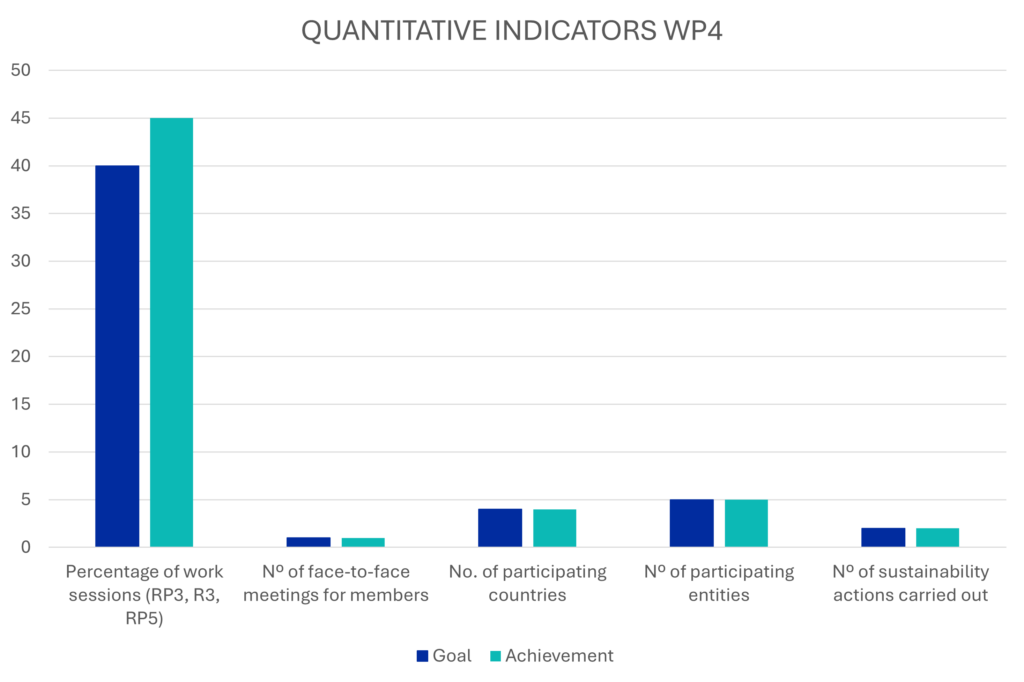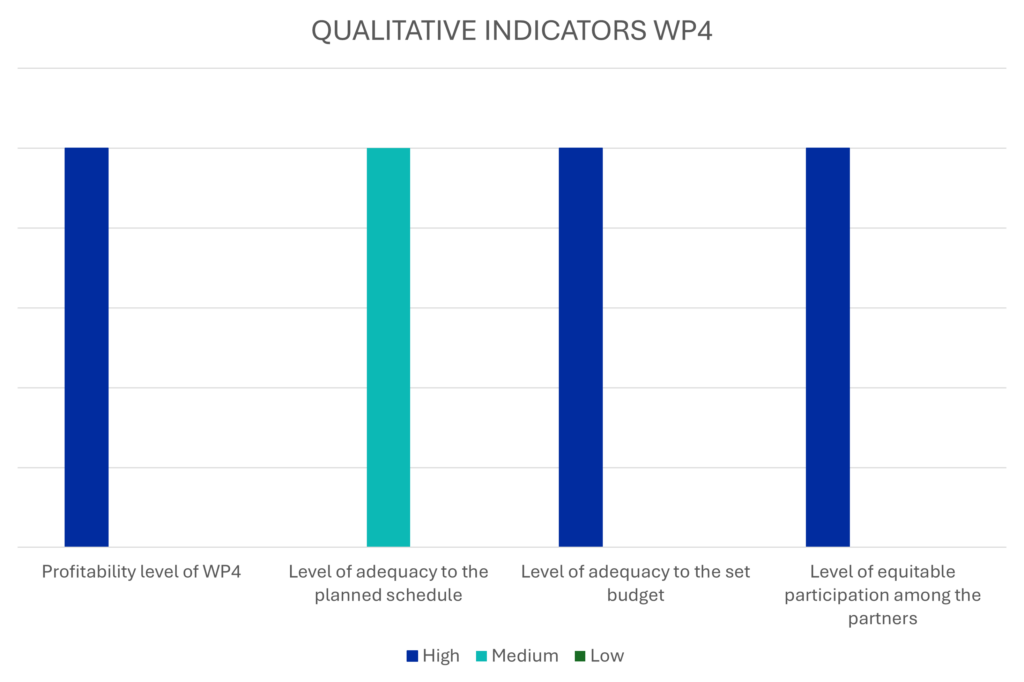The evaluation is being carried out with a participatory methodology through spaces for analysis and reflection. Through a Total Quality Management System, an evaluation process has been established for the 4 phases of the project
(planning, preparation, implementation, and monitoring) based on the PDCA (Plan-Do-Check-Act) cycle.
The PDCA cycle is a methodology for the continuous management and evaluation of a project’s processes, which allows us to identify achievements and make improvements.
It is comprised of four cyclical stages, so that once the final stage is finished, you must return to the first stage and repeat the cycle again. Thanks to this method, the activities are periodically reevaluated to add improvements
detected.
Stages of the cycle:
- Plan: the first stage of the cycle, in which the objectives to be achieved are identified and the necessary actions to achieve them are planned.
- Do: in the second stage, the planned actions are implemented. It is time to develop the activities planned for each of the phases of the project.
- Check: this is the stage in which the progress and results obtained in the previous stage are evaluated. It is time to verify the achievements obtained and identify areas for improvement.
- Act: in this stage, decisions are made to improve the project, based on the results obtained in the previous stage.
MIDTERM INDICATORS
WORK PACKAGE 2
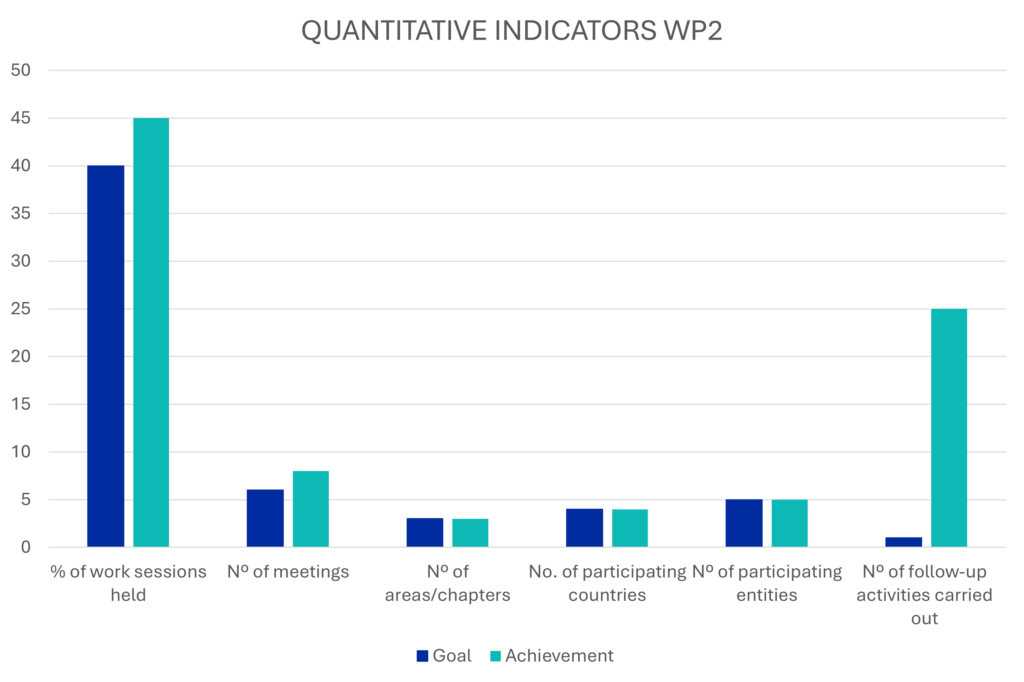
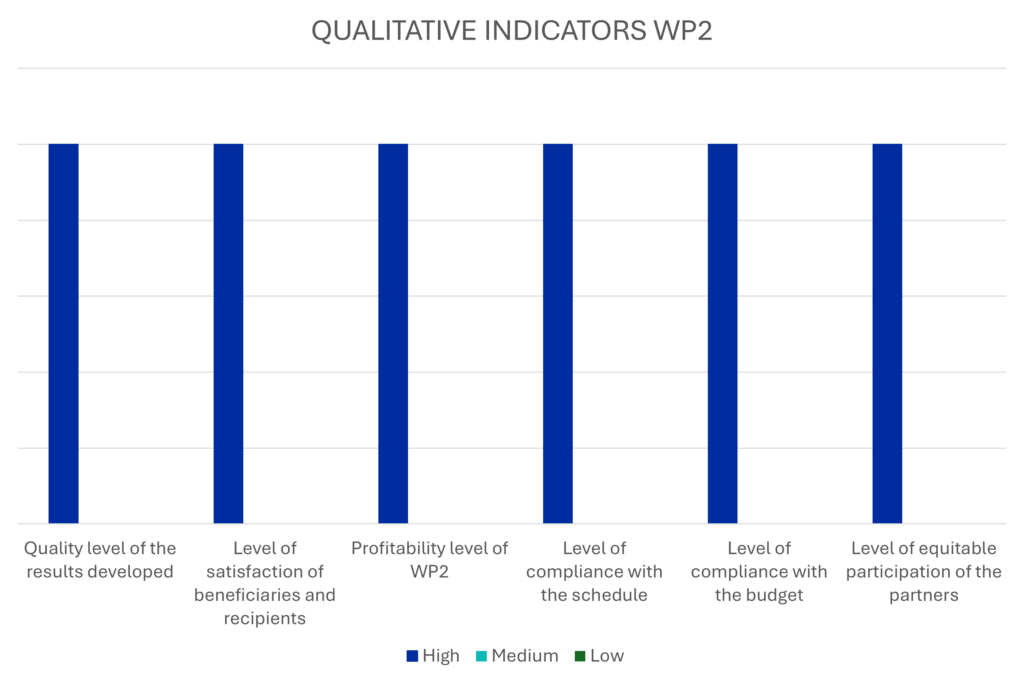
WORK PACKAGE 3
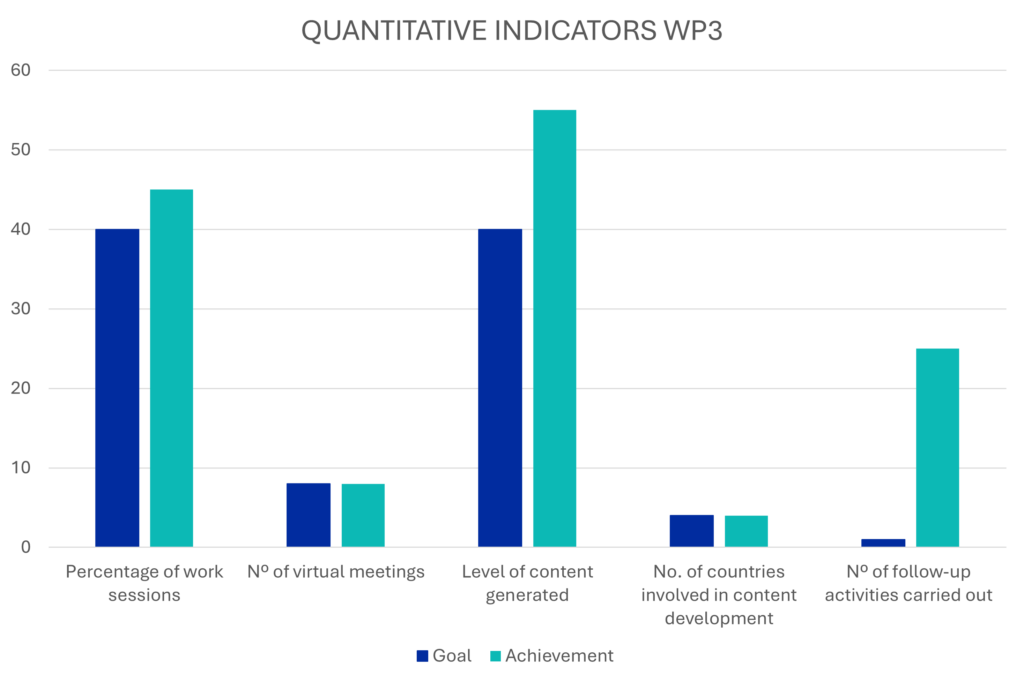
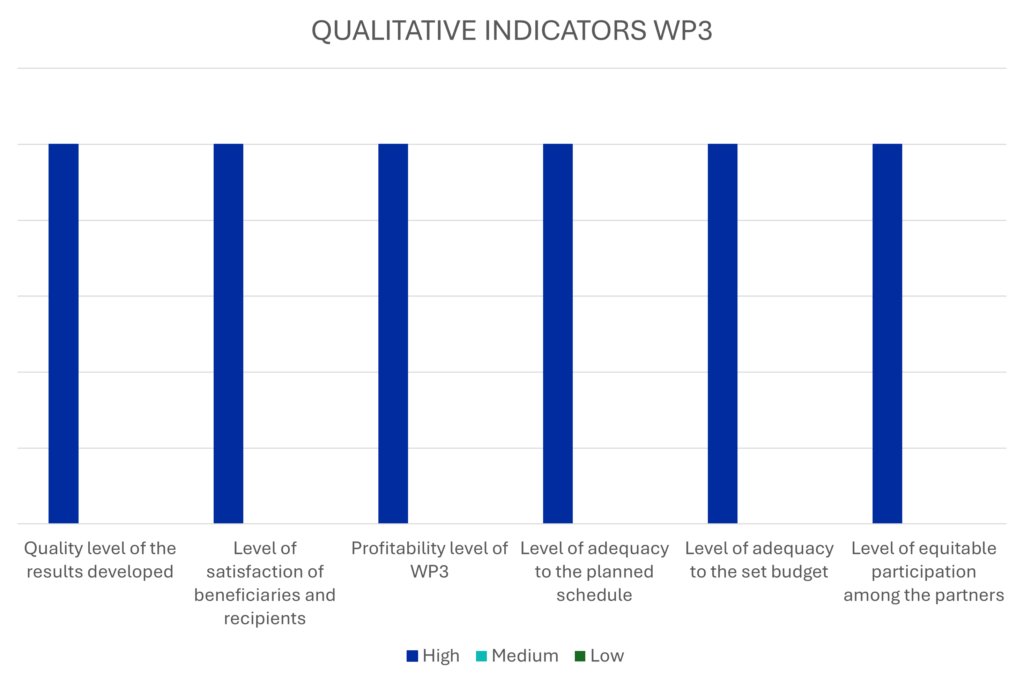
WORK PACKAGE 4
